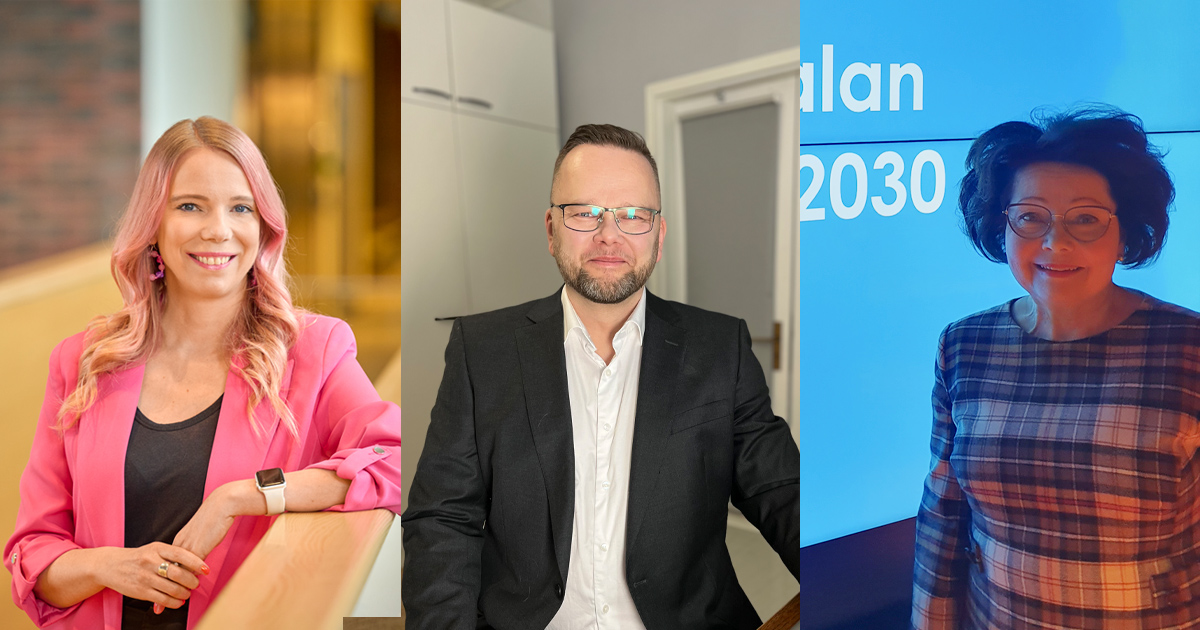
The strictly regulated financial sector has taken a forward-leaning approach to new technological advances. It is now excitedly looking forward to the opportunities that generative AI will provide.
The Finnish financial sector has invested in competence development and the evolution of work. Much of the focus that used to be on digitalisation has now shifted to generative AI.
New technologies tend to trigger scepticism and uncertainty, but this effect is particularly pronounced with generative AI. Addressing it will require dialogue on ethics and security. Heidi Tuominen, manager of corporate services at Aktia, focuses on the possibilities: “We are workshopping the everyday benefits of AI with curiosity and enthusiasm. I’m confident it will help make our work more efficient, speedy and meaningful.”
According to a survey conducted as part of the Finnish Institute of Occupational Health THL’s WORK2030 project, attitudes towards generative AI are generally positive in the financial sector. In their responses, most sector employees believed that AI will not replace human employees, expertise will only grow in importance, routine tasks will become automated and data analysis will become easier.
“In the future, the role of professional work will only be highlighted because the validity of all AI-generated data must be competently checked. New regulatory requirements have increased our manual workload, and in this sense, I’d say that AI has potential to even save the sector. Reducing the amount of routine office work enables our employees to better engage with and commit to our customers”, envisions Account Manager Jarkko Pessinen from Pohjola Insurance.
The previous focus on media literacy has also begun to shift to AI literacy. According to the survey respondents, making the most of generative AI requires encouragement, training and support from the highest levels of an organisation.
“The artificial intelligence we have today is more like assisting intelligence that can help compile presentations, data and summaries on your behalf. The time that this saves can be better spent on meetings with customers and other staff members and on developing new ideas”, Varma’s HRD Manager Pauliina Heiskanen sums up.
Heiskanen, Pessinen and Tuominen each have several decades of working experience in the sector, and they share the same outlook on the future: “The financial sector will embrace this shift just as successfully as it has done many times over the years.”
This article was originally published in Finnish in Helsingin Sanomat.
- The Finnish financial sector’s employer and employee organisations have a long history of cooperation in examining the sector’s future prospects, companies and employee wellbeing.
- The sector has worked on themes such as digitalisation, workplace diversity and multi-location work. As part of the WORK2030 programme’s futures dialogue, the sector is now focusing on generative AI.
- Part of this work was a survey conducted on financial sector employees. The survey results indicated positive attitudes towards the potential of generative AI.
- The participants to the futures dialogue include Finance Finland, Trade Union Pro, Service Sector Employers Palta, the Federation of Professional and Managerial Staff YTN, and the Finnish Institute of Occupational Health’s WORK2030 programme.
Still have questions?
|Contact our experts
Looking for more?
Other articles on the topic

How much would the digital euro cost? Initial estimation published

Cash withdrawals fell in the second half of 2024 – Cash usage is unlikely to pick up even if its volume is increased

Cash is not about to disappear – its volume must not be increased without a real need or demand

Is the FIDA proposal worth its cost or a hundred million dud?




